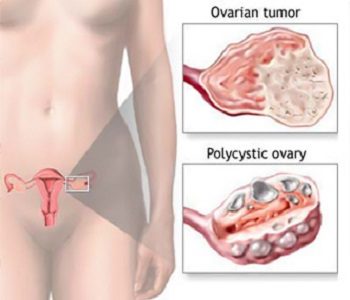Amenorrhea
Amenorrhea
Amenorrhea (uh-men-o-REE-uh) is the absence of menstruation — one or more missed menstrual periods. Women who have missed at least three menstrual periods in a row have amenorrhea, as do girls who haven’t begun menstruation by the age of 16.

Other disorder can cause Amenorrhea are :
- Polycystic ovarian syndrome – the ovaries develop clusters of blister-like cysts. Symptoms include irregular periods and excessive hair growth. Women with polycystic ovarian syndrome are especially prone to amenorrhoea when they gain weight.
- Hyperandrogenaemia – the body produces high levels of male sex hormones, which can affect the reproductive system. This can be caused by ovarian or adrenal tumours, or certain conditions present at birth.
- Hyperprolactinaemia – the body produces high levels of the breastfeeding hormone prolactin. Levels rise due to overactivity of, or a tumour on, the pituitary gland.
- Ovarian failure or early menopause – low levels of oestrogen cause ovulation to fail, which stops the menstrual cycle.
- Abnormalities of the vagina – a sealed hymen, for example, can prevent menstrual blood from leaving the vagina. This is a rare condition and symptoms include a swollen abdomen, delayed periods and abdominal pain.
Diagnosis Of Amenorrhea
To diagnose amenorrhoea, all other possible causes, such as certain reproductive disorders, must first be eliminated.
Test can include:
- pregnancy tests, which can be either a urine or a blood test
- physical examination to determine overall health and the presence of other sexual characteristics
- medical history, including gynaecological history and contraceptive methods used
- hormone tests to check the functioning of the hypothalamus, pituitary glands and ovaries
- other scans, which can include CT scans and ultrasounds of the reproductive system.
Treatment for Amenorrhea
Treatment for amenorrhoea depends on the cause. If the condition is due to extreme weight loss and excessive exercise, treatment will involve encouraging you to maintain a healthier body weight.Other treatment options can include weight loss (if overweight) and managing the underlying disorder. Hormone replacement therapy (HRT), such as the combined oral contraceptive pill, will usually cause periods to return, but will not treat any underlying cause.